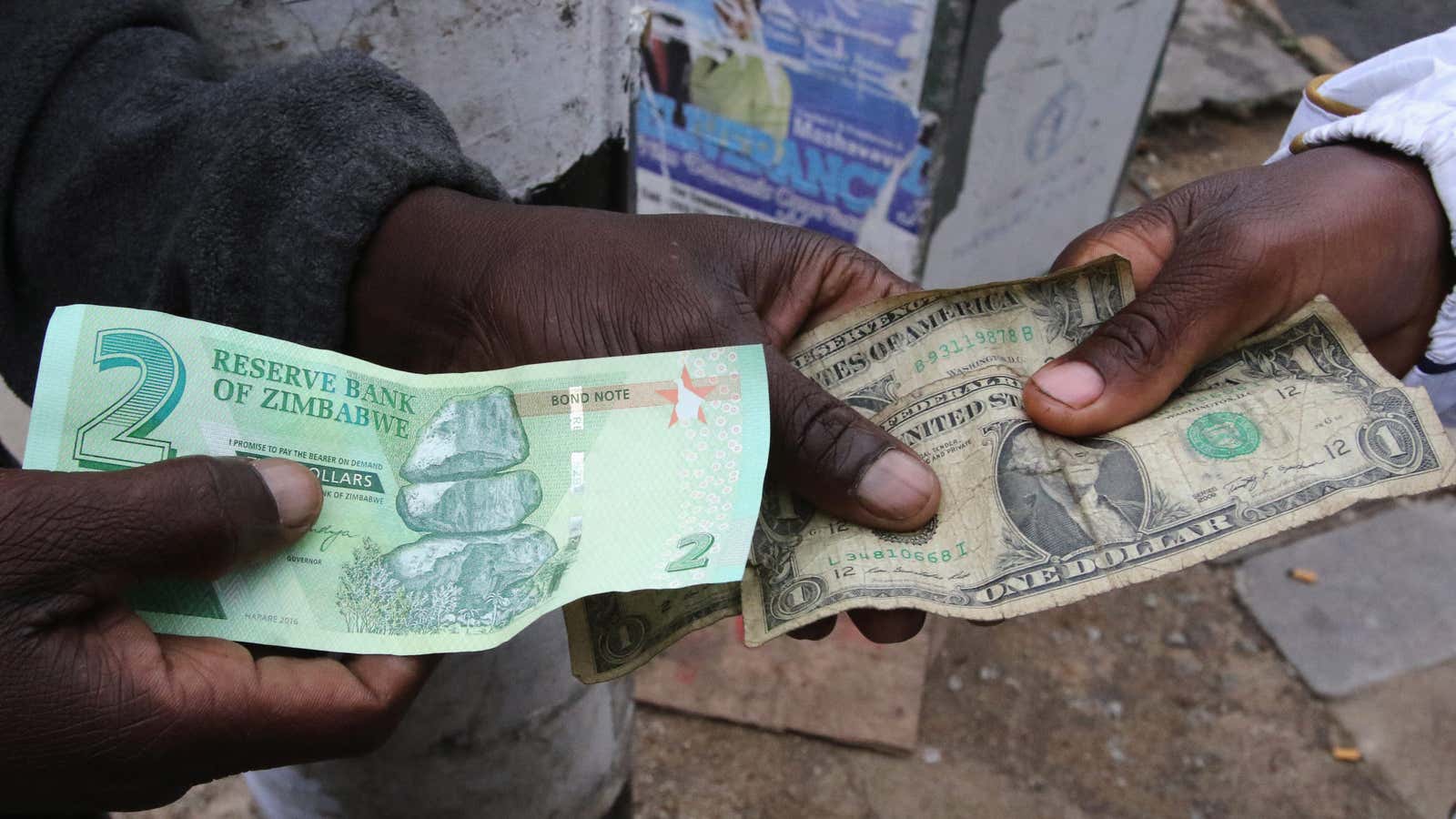Bitcoin is back on the radar in Zimbabwe as the country’s economy continues to struggle.
The cryptocurrency is trading briskly here after president Emmerson Mnangagwa’s government banned the use of foreign currencies for settlement of local transactions.
It comes as Zimbabwe re-introduced the Zimbabwe dollar unit it abandoned in 2009 and banned settlement of local transactions using the United States dollar, British pound, South African rand and other foreign currencies. The government has been trying to curb re-dollarization of the economy and apparently to tame growing pressure from workers’ unions demanding salary payments in foreign currency.
While the monetary policy measures, introduced June 24 , have taken effect across larger formal businesses, they have also breathed fresh impetus to local trade in bitcoin leading to a rise in local prices for the digital currency. The Reserve Bank of Zimbabwe banned local banks from processing transactions involving bitcoin more than a year ago. However, crypto experts in Zimbabwe say peer-to-peer trade in bitcoin is surging, with mobile money platform, EcoCash, being the dominant payment platform for bitcoin traders from inside the country.
Tech savvy Zimbabweans have long used bitcoin and other cryptocurrencies to plug foreign currency and liquidity gaps that have plagued the country for the last decade, so much so that the southern African country has been one of Africa’s most active markets for crypto transactions. Right now, investors and speculators alike will be turning to bitcoin as a more stable storage of value than the new Zimbabwe dollar which is still overwhelmed by uncertainty.
The price of bitcoin in local currency has surged, according to the cryptocurrency’s pricing list for Zimbabwe on localbitcoins.com.
Over the past week, traders have also been using Paypal, Western Union and Moneybookers as settlement platforms using hard US dollar currency for bitcoin trades from outside the country at prices between $12 400 to around $12 700. This is mainly because Zimbabweans can no longer use foreign fiat currencies to settle local transactions.
Local mobile money service Ecocash is being used for Zimbabwe dollar bitcoin transactions. Bitcoin traders in Zimbabwe are also accepting hard cash deposit among the options for payment, with local crypto experts saying bitcoin trades are currently on a peer-to-peer level as there are no local exchanges facilitating cryptocurrency trades and transactions.
The central bank has clarified that free funds—which include remittances and individual foreign currency accounts—will still be accessible in hard currency while companies will not be allowed to withdraw hard foreign currency. They have to exchange funds in their foreign currency accounts at the prevailing bank exchange rate and use the money in local currency.
“What we are seeing is that there is a lot of demand for bitcoin,” Tawanda Kembo, CEO and founder of the Golix crypto exchange which was affected by the central bank’s directive to ban exchanges from crypto trading. “And there is little supply compared to demand so all the activity in bitcoin which we are seeing is happening on dark markets instead of exchanges,” he added.
This means traders and facilitators in bitcoin trade are still processing “a lot of transactions over the counter” and on a peer to peer basis. “I don’t know of any crypto exchanges that have any significant volume (in bitcoin trades),” says Kembo.
Sign up to the Quartz Africa Weekly Brief here for news and analysis on African business, tech and innovation in your inbox
